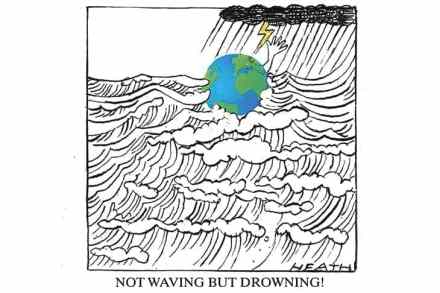The urgent case for net zero
Earlier this year, a report from climatologists around the world made it clear that climate change is happening now and that it is almost entirely a result of human behaviour. This is not a controversial conclusion and it is not hard to explain how the report’s authors arrived at it. First, independent observations — from the ocean to the atmosphere, from poles to tropics — all show rapid and significant warming over the past century, particularly over the past few decades. Human activity has simultaneously caused a 50 per cent increase in carbon dioxide concentrations, a more than doubling of methane concentrations, and the appearance of multiple synthetic gases, all





















